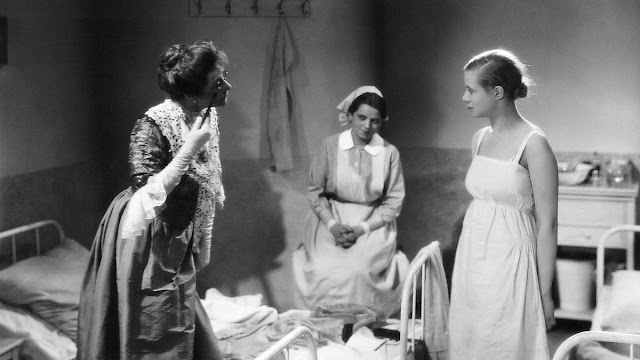Madchen in Uniform (1931)
Leontine Sagan's "Madchen in Uniform"
At a time in Germany when Nazism was on the political rise and the ever-present threat of authoritarianism loomed large, many filmmakers were making radical films to push back against these oppressive forces. One of these films, 1931's "Madchen in Uniform" was a particularly unique film. Not only was the film written by a women, it was directed by a woman, and featured no male actors amongst the several dozen cast members. Written by Christa Winsloe and based on her stage play of the same name, the film was able to be produced for low budget, as many of the actors reprised their stage parts for a reduced salary. To direct the film, Leontine Sagan was tasked. Sagan had no prior directing experience, but her work as an actress gave her the added benefit of being involved with the filmmaking process and directing actors. Despite the film putting her on the map, she would only go on to direct three more pictures.
"Madchen in Uniform" takes place at an all-girls boarding school run by an authoritarian headmistress. The girls find their living conditions impossible, as they are restricted in their diet, freedoms, and overall expression. When one new girl begins to develop feelings for one of her teachers, questions begin to arise involving the restrictive oppression on the girls by the authoritarian figureheads.
These themes involving sexual liberation, freedom of expression, and the importance of providing a caring and loving parental figure to the children on the film all are active statements made against the growing concern regarding the rise in fascism in Germany (as well as around Europe). It is interesting to note that Winsloe and Sagan's use of an all-female cast really iterates the fascist and patriarchal elements they are attempting to push up against. Had the headmaster and teachers all been male, perhaps many would consider the film to be an overt discussion about the resistance against males in general. Obviously, the pushback against patriarchal suppression is an important element within the confines of the film's themes, but rather than viewers getting lost in the weeds about the notion of a 'battle of the sexes,' Winsloe and Sagan eliminate this worry by establishing the themes are far more existential than simply 'man vs woman.' Because it is an all-female cast, these themes are expressed in a far more efficient way. The notions of suppression and control are what is being attacked in this film. If the authoritative patriarchy just so happen to be this element of authority and control in the real world, then the shoe simply fits. Either way, Winsloe and Sagan establish their arguments without needing to defend themselves against biases or misrepresentation.
Because of the overt lesbian themes in the film, it was banned in Germany for many years after its release. I would argue that the film is less concerned with its overt same-sex romanticism, although its importantly present, but that love, affection, and care are the primary driving points. The oppressive forces in the film present an inherent antithesis to the care and love needed for a collaborative and healthy society. The lesbianism in the film is an added notion about sexual freedom from this oppressive force. But it is the tenderness by the teacher and her students that demonstrate the needed antidote to the authoritative forces oppressing Germany at the time.
Because "Madchen in Uniform" was a film exploring sexual liberation and anti-authoritarianism, it became a huge cult success decades after its release. The film has become especially important given the time and place of its release. At the heart of terror, fear, and paranoia in an escalating fascist German state in the 1930s, "Madchen in Uniform" was a formidable, brave, and radical picture offering push-back, resiliency, and most importantly, love in a time of darkness.




Comments
Post a Comment